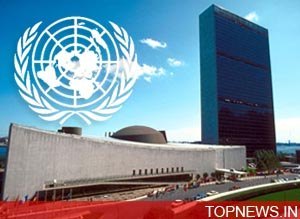Gaza offensive continues in defiance of Security Council
 Gaza City/Tel Aviv - Israel's ministerial committee for national security decided Friday to continue its military campaign in the Gaza Strip, the prime minister's office said, despite a UN Security Council resolution calling for an immediate ceasefire.
Gaza City/Tel Aviv - Israel's ministerial committee for national security decided Friday to continue its military campaign in the Gaza Strip, the prime minister's office said, despite a UN Security Council resolution calling for an immediate ceasefire.
"Israel has a right to protect its citizens," the afternoon statement said, noting that the military would "continue to change the security situation in the south," parlance for attacking militant targets and sources of rocket fire and conducting activities to curtail arms smuggling.
Caretaker Prime Minister Ehud Olmert said in a statement earlier that Israel "has never agreed that any outside body would determine its right to defend the security of its citizens," a reference to the UN's resolution.
Israel also maintains an option, analysts said, to go to "phase three," which would mean sending more ground troops deeper into populated areas.
The offensive continued overnight and throughout the day, with the Israel Air Force pounding dozens more targets throughout the strip overnight. On Friday evening, the offensive began anew, with attacks focusing on the northern end of the Gaza Strip.
About 70 targets were hit during the day, a military spokeswoman said, adding that Palestinian militants had fired more than 30 rockets at Israel.
Even a three-hour "humanitarian lull" Friday did not bring respite to the enclave.
Three Palestinians were killed during the lull, medics said. In all, an additional 29 people were reported dead Friday, including those who died of previously sustained wounds. The Palestinian death toll stood at 792, while more than 3,200 were reported wounded.
Of the Palestinians killed Friday, six were members of the family of an activist of the Democratic Front for the Liberation of Palestine (DFLP): his wife, sister-in-law and four children.
Four Israeli soldiers were wounded overnight in ground fighting, and another three were wounded during the day.
Nine Israeli soldiers and three civilians have been killed since the campaign began on December 27. More than 600 rockets have been fired at Israel since that time, a military spokeswoman said.
Olmert said that Friday's rocket fire "only proves that the UN Security Council Resolution 1860 is not practical and will not be honoured in actual fact by the Palestinian murder organizations."
UN relief organizations announced Friday that they would renew humanitarian aid to the Gaza Strip as soon as possible after receiving assurances about their safety from Israeli officials. A UN convoy came under fire Thursday, resulting in the deaths of two aid workers.
"We will closely monitor the Israeli commitment to these assurances," said Chris Gunness, a spokesman for UNRWA, the UN agency for Palestinian refugees, in Jerusalem.
UNRWA is the largest aid agency in Gaza, and together with the World Food Programme aids about two-thirds of Gaza's 1.5 million residents.
The Red Cross limited activities Friday after it, too, had come under fire.
UN Secretary General Ban Ki-moon told Olmert by phone that he was disappointed that the Security Council's resolution had been disregarded and the violence had continued.
Hamas had rejected the UN resolution, with spokesman Sami Abu Zuhri telling Arabic news channel al-Jazeera from Yemen, "We are not concerned by the decision because Hamas was not consulted, and it did not take into consideration the interest and demands of our people in Gaza."
Nonetheless, Hamas sources reported Friday that three high-ranking members of the organization had arrived in Cairo to discuss details of an Egyptian peace proposal.
Israel's Channel 10 reported that two had left Gaza with Israeli knowledge. However, the highest ranking members of Hamas in the enclave remained in hiding and will not attend the talks.
Islamic Jihad said in a statement that the Security Council decision was not acceptable.
A spokesman for Palestinian President Mahmoud Abbas called the Security Council resolution an "Arab accomplishment."
Protests took place in the West Bank, under Abbas' control, with 3,000 people gathering in Ramallah. Demonstrations also took place in Nablus. There were also widespread protests throughout the Arab world Friday.
The Israeli military said it had placed a two-day closure, set to end early Sunday, on the West Bank as a security precaution.
The UN resolution came after days of intense negotiations between Arab member states and the Security Council's Western veto powers, the United States, Britain and France.
It passed overwhelmingly with a vote of 14-0 with the US abstaining. Secretary of State Condoleezza Rice said Washington "fully supports" the goals, text and objectives of the resolution but abstained because it felt it was important to see the outcomes of the Egyptian efforts to achieve a mediated diplomatic solution.
The carefully worded text calls for an "immediate, durable and fully respected ceasefire" as well as for alleviating the humanitarian situation in Gaza and the "sustainable" reopening of Gaza's border crossings.
It calls for the prevention of "illicit trafficking in arms and ammunition" to Gaza via Egypt - a major Israeli concern - as well as for "tangible steps" toward reconciliation between the rival Palestinian Hamas and Fatah factions in Gaza and the West Bank. (dpa)